Common Child Mental Health Issues and When to Seek Professional Help
Explore the most common child mental health issues and when to seek professional help. Learn signs of anxiety, ADHD, depression, and autism in children with guidance from Delhi’s trusted child psychologist, Surabhi Rakshita.
Introduction

Common child mental health issues and when to seek professional help are concerns many parents face today. Children, just like adults, can experience emotional struggles that affect their daily lives. As parents, noticing changes in your child’s behavior or mood can be worrying, especially when you are unsure whether the situation requires professional help.
I am Surabhi Rakshita, a Counselling Psychologist in Delhi with years of experience supporting children and families. In this article, I will explain the most common child mental health issues and when to seek professional help, so you can better understand your child’s needs and take the right steps.
If you often find yourself searching “child psychologist near me” or “best child psychologist in Delhi”, this guide will provide the clarity you need.
What Are Child Mental Health Issues?
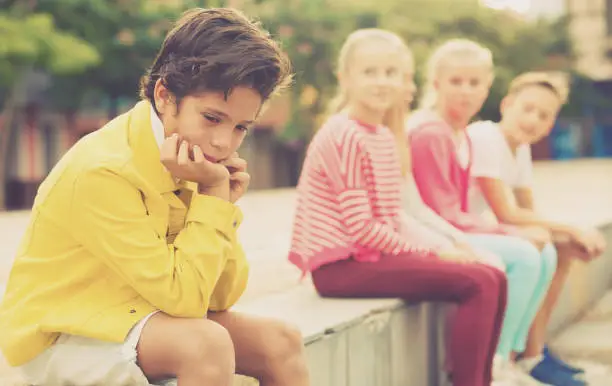
Child mental health issues are psychological, behavioral, or emotional challenges that affect a child’s ability to function well in school, at home, or in social interactions. These challenges range from mild anxiety and difficulty concentrating to more serious conditions such as depression and autism spectrum disorder (ASD).
Unlike adults, children may not always express their problems verbally. Instead, they often show their struggles through actions—such as withdrawing from friends, displaying aggression, or losing interest in activities they once enjoyed.
Timely recognition and professional intervention are essential. Just like physical health problems, mental health conditions can worsen if ignored. Early support allows children to build resilience, develop coping strategies, and grow into emotionally healthy individuals.
Common Child Mental Health Problems
While occasional sadness, frustration, or distraction is a normal part of childhood, persistent or disruptive patterns of behavior may signal deeper concerns. Below are the most common mental health issues among children.
Anxiety Disorders in Children
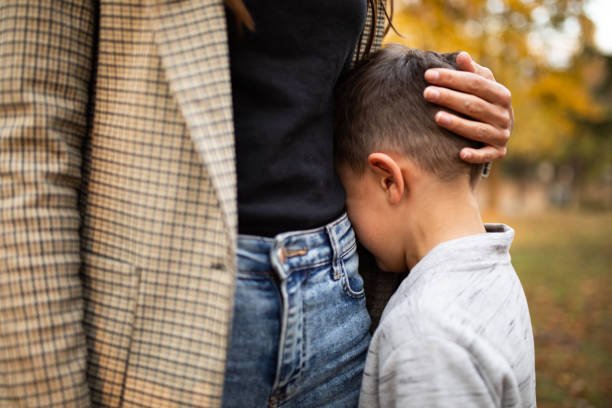
Anxiety disorders are among the most widespread child mental health issues these days. These include:
- Generalized Anxiety Disorder (GAD): Constant worry about school, friendships, or everyday activities.
- Separation Anxiety Disorder: Extreme fear when away from parents or caregivers.
- Social Anxiety Disorder: Intense fear of social interactions or being judged.
- Phobias: Irrational fear of specific objects or situations.
A child with anxiety may avoid school, cling excessively to parents, or complain of headaches and stomachaches when nervous. Left untreated, anxiety can impact a child’s confidence and ability to enjoy life.
Therapy and counseling help children manage fears, develop coping skills, and regain emotional balance.
Attention Deficit Hyperactivity Disorder (ADHD)

Children with ADHD often display symptoms such as:
- Difficulty focusing on tasks.
- Impulsive behavior.
- Restlessness and inability to sit still.
- Forgetfulness and frequent loss of belongings.
ADHD affects not only academic performance but also friendships and family relationships. These children may be unfairly labeled as “lazy” or “naughty” when, in reality, they need structured support.
With professional guidance, behavioral strategies, and routine management, children with ADHD can succeed in school and build stronger relationships.
Depression and Mood Disorders

Depression is not limited to adults—children too can suffer from persistent sadness and mood swings. Warning signs include:
- Ongoing irritability or sadness.
- Loss of interest in play and social activities.
- Changes in appetite or sleep patterns.
- Frequent complaints of unexplained physical pain.
If left untreated, depression can harm a child’s self-esteem, academic progress, and social life. Therapy provides children with tools to express their emotions and helps parents create a supportive home environment.
Behavioral Disorders
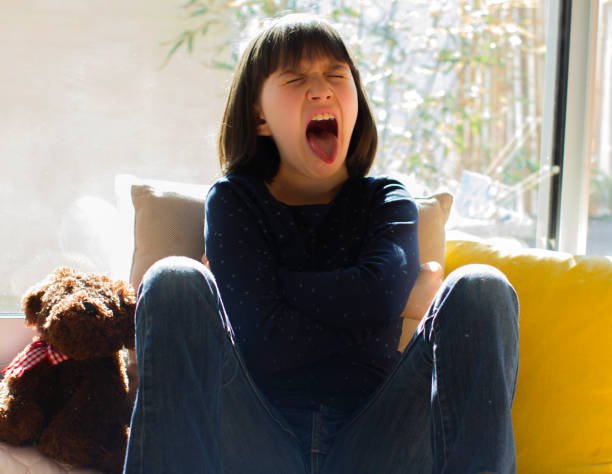
Two of the most common behavioral disorders in children are:
- Oppositional Defiant Disorder (ODD): Persistent defiance, arguing, and refusal to follow rules.
- Conduct Disorder (CD): Aggressive behaviors, lying, or breaking rules.
These issues often create tension at home and school. Professional support helps children learn self-control, empathy, and positive behavior patterns.
Autism Spectrum Disorder (ASD)
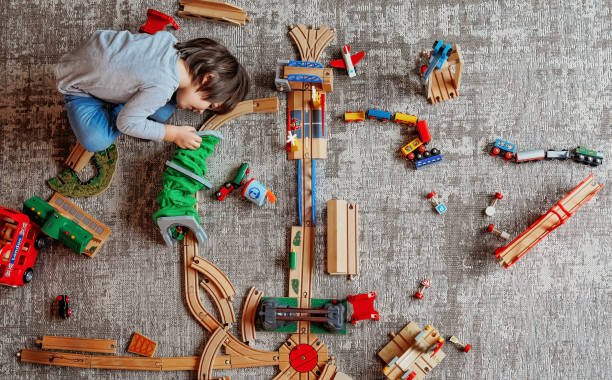
ASD is a developmental condition that affects communication, social interaction, and behavior. Children with autism may:
- Avoid eye contact.
- Struggle with speech or conversations.
- Show repetitive behaviors.
- Develop a strong preference for routines.
Early diagnosis is crucial, as therapy can significantly improve communication and social skills. With proper guidance, children with autism can thrive and lead fulfilling lives.
Warning Signs That Your Child Needs Professional Help
Parents often ask, “How do I know if my child needs therapy?” Look for these warning signs:
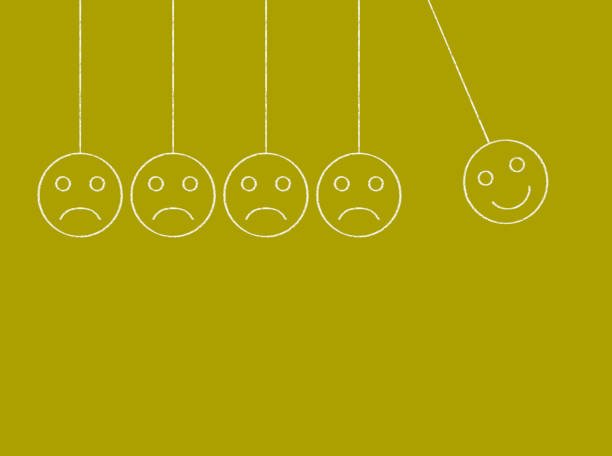
- Withdrawal from friends or family.
- Sudden or extreme mood changes.
- Struggles with concentration or forming friendships.
- Persistent fear, sadness, or worry.
- Declining academic performance.
- Frequent anger, aggression, or irritability.
- Disturbed sleep or eating patterns.
If these signs appear consistently, it is time to seek support from a trusted child psychologist in Delhi.
When and How to Contact a Trusted Child Psychologist
Seeking professional help at the right time can make a significant difference in your child’s future. Here’s how to proceed:
- Check qualifications and experience – Choose a psychologist certified in child psychology.
- Read reviews and testimonials – Learn from other parents’ experiences.
- Book an initial consultation – Share your concerns and understand the treatment plan.
- Evaluate comfort levels – Ensure your child feels safe and comfortable with the psychologist.
Taking timely action shows your child that their feelings matter and that help is available.
Why Choose Unwind & Evolve as a Reliable Child Psychologist in Delhi
As a Counselling Psychologist and a PRT Counsellor in Delhi, I, Surabhi Rakshita, provide therapy that is both compassionate and evidence-based. My approach is personalized to each child’s needs, ensuring better outcomes for issues such as anxiety, ADHD, depression, and developmental challenges.
I involve parents actively in the therapeutic process, equipping families with tools to support children outside therapy sessions. This family-centered approach leads to long-lasting positive changes.
For more information about my services, please visit: https://unwindandevolve.in
Contact Information
If you are seeking professional child mental health support in Delhi, you can reach me here:
- Website: https://unwindandevolve.in/
- Email: info@unwindandevolve.in
Take the first step today toward building a happier and healthier future for your child and get rid of your child’s mental heath issues.
Conclusion
Child mental health issues are more common than many parents realize, but the good news is they are manageable with timely professional help. By identifying warning signs early and seeking guidance from a trusted child psychologist in Delhi, you can protect your child’s emotional well-being and ensure a brighter future.

Your child’s happiness and mental health should always be your top priority. Visit https://unwindandevolve.in/ to learn more and begin your journey toward positive change.
FAQs
1. How do I know if my child’s behavior is normal or a sign of a mental health problem?
Occasional mood swings are normal, but if the behavior is consistent and affects school or home life, it may be a mental health concern.
2. Can children experience depression?
Yes, children can suffer from depression. Signs include persistent sadness, irritability, or withdrawal from activities.
3. Is ADHD treatable?
ADHD is not curable, but with therapy, routines, and support, children can manage symptoms effectively.
4. How early can autism be diagnosed?
Signs of autism can appear as early as 18 months. Early intervention significantly improves outcomes.
5. Why is professional help important for children?
Professional guidance ensures early problem-solving, reduces long-term risks, and helps children develop resilience.
